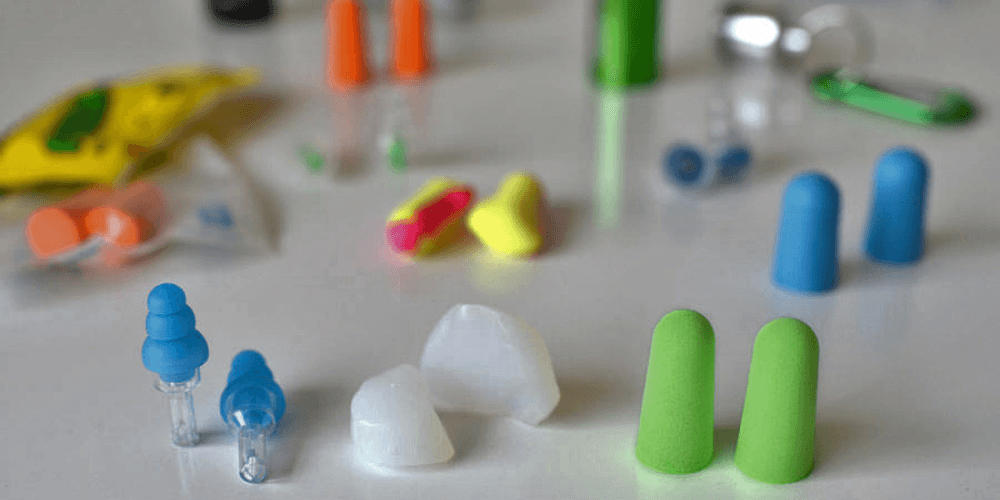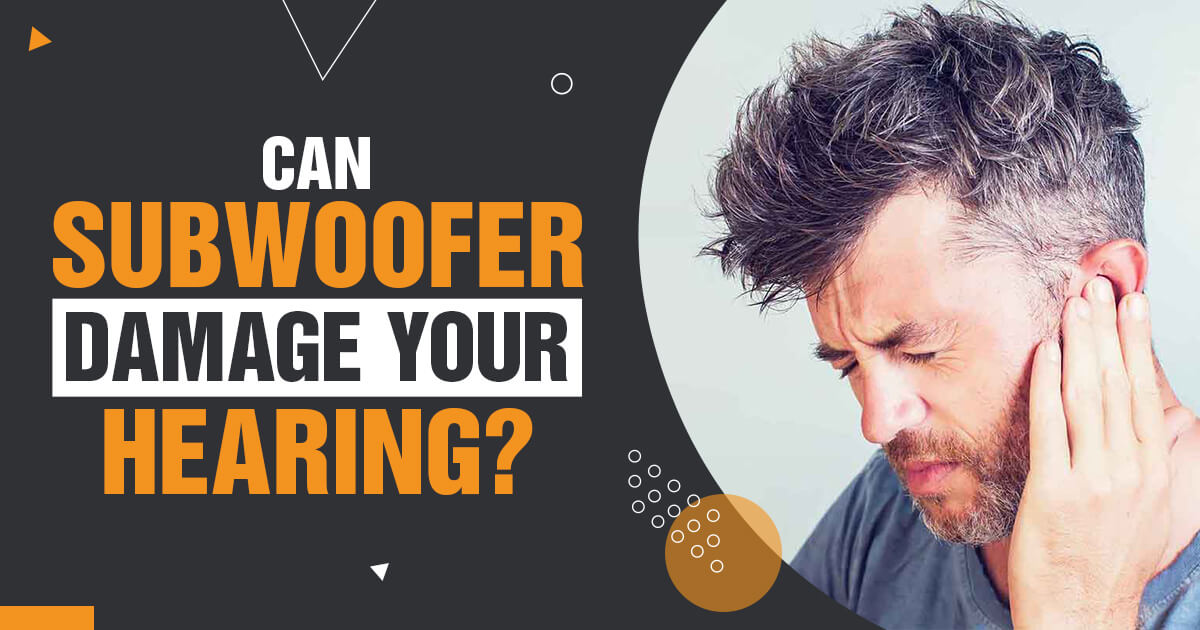Most people know that loud noises can damage your hearing. You may not have thought about the role of subwoofers in this equation. Subwoofers are typically very powerful and can produce sound waves that exceed 115 decibels, which is louder than a jet engine!
This means they could potentially cause permanent hearing loss if you’re exposed to them for long periods of time.
It is crucial to take a few steps when wearing ear protection and using a subwoofer or headphones to avoid hearing loss and the risk of tinnitus (ringing in the ears). This blog post will explore how subwoofers affect our hearing and provide tips on protecting yourselves from this issue.
Why You Should Be Worried About Your Hearing If You Have A Subwoofer?
The average person should be worried about their hearing if they have a subwoofer for several reasons.
First, the decibel levels produced by most Subwoofers are higher than 100 dB (around 115 dB), which is more than enough to cause some damage to your ears. For reference, normal conversational speech is about 60 dB.
Second, long-term exposure to these high levels of decibel can cause permanent damage. In fact, the longer you are exposed to loud noises, the more likely you will be affected by hearing loss. It may have been fun at the time, but you were putting yourself at risk for hearing loss.
Finally, the low-frequency sounds of Subwoofers can also cause damage to your ears. So while you may not be able to hear the noise and with higher frequencies, you can still damage your ears and cause hearing loss.
How Can I Protect My Hearing From Subwoofer Levels?

Here are a few simple things that you can do to ensure your safety when encountering loud noises, such as those emitted by subwoofers:
Wear ear protection. The best solution is custom-fitted earplugs, which are specifically designed to block out specific frequencies.
This makes them very effective at blocking subwoofer frequencies without distorting the sound quality of music or dialogue. You can also use over-the-counter earplugs, but remember to change them regularly and keep a pair at home, in your car, and at work.
Turn down the volume. One of the easiest things you can do to protect your hearing is to turn down the volume. According to the World Health Organization, 90% of people listening to music on their devices do it at unsafe volume levels. It’s easy for the bass volume of a song or video to reach dangerous levels, so remember to keep the volume at a reasonable level.
Turn down the bass. You can also adjust the individual bass levels of your speaker components. If your subwoofer’s bass levels turned up too high, it would play at unsafe levels when paired with other speakers.
Use noise-canceling headphones. Noise-canceling headphones block out background noise. This is very important for protecting your hearing because background noise can mask the sound of music or dialogue. That means that you won’t have a good idea of how loud it is.
Don’t listen too closely for extended periods without breaks. A common mistake is that people listen intently through headphones for long periods, with the volume turned high. This causes the same damage as being close to a subwoofer for a long time.
Keep your listening sessions brief and at appropriate volumes, and it will help you avoid damaging your hearing. Every time you attend a concert, take breaks and spend some time away from the sound system.
Are Subwoofers Bad for Your Ears?
Though subwoofers are often thought of as essential for an immersive audio experience, some experts have raised concerns about the potential health risks associated with prolonged exposure to subwoofer sound waves. So, are subwoofers bad for your ears?
Some experts believe that the low frequency sound waves emitted by subwoofers can damage the delicate hair cells in the inner ear, leading to hearing loss over time.
In addition, these sound waves can cause a condition known as “auditory fatigue,” which is characterized by a temporary loss of hearing sensitivity and tinnitus (ringing in the ears).
However, it should be noted that there is no definitive evidence linking exposure to subwoofer sound waves with hearing loss or other health problems.
Can Subwoofers Damage Your Ears?
You’ve probably heard the saying “music is medicine for the soul.” But did you know that too much of a good thing can actually be bad for you? The same goes for subwoofers.
While the low frequencies produced by subwoofers can give you a feeling of euphoria, it can also cause damage to your ears.
When these low frequencies are played at high volumes, they can cause a condition called “temporary threshold shift.” This is when your hearing is temporarily diminished and you may experience ringing in your ears.
If you already have hearing loss, subwoofers can make it worse. And if you’re exposed to loud noises on a regular basis, you could develop permanent hearing loss.
How Many Decibels is a Subwoofer?
A subwoofer is a loudspeaker that produces sounds of lower frequencies than what is typically heard from standard speakers.
The sound produced by a subwoofer is usually felt more than it is heard. While the decibel level will vary depending on the model and make of the subwoofer, most subwoofers range from about 80 to 120 decibels.
At its highest setting, a subwoofer has the potential to cause hearing damage if someone is standing too close to it.
It is important to keep in mind that decibels are measured on a logarithmic scale, so even a small increase in decibels can represent a significant increase in sound intensity.
For example, an increase from 85 decibels to 95 decibels represents a doubling of the sound intensity.
Can Bass Damage Your Ears?
Yes, bass can damage your ears. The low frequencies of bass can cause the delicate hair cells in your ear to vibrate excessively. This can lead to a condition called sensorineural hearing loss, which is permanent.
If you enjoy listening to music with a lot of bass, it’s important to take precautions to protect your hearing.
Use earplugs or noise-cancelling headphones when possible, and keep the volume at a moderate level. If you start to experience ringing in your ears or other symptoms of hearing loss, see an audiologist for a hearing test.
Conclusion
In summary, can subwoofers damage your hearing? it’s important to remember that you aim to enjoy the music you love, not to damage your hearing. If you love your subwoofer and want to keep enjoying those deep base notes, you just need to be careful how you use them.
That means wearing protection, keeping the volume under control, and limiting the duration. This way, you can continue to enjoy all your favorite music without worrying about the potential damage to your hearing.

